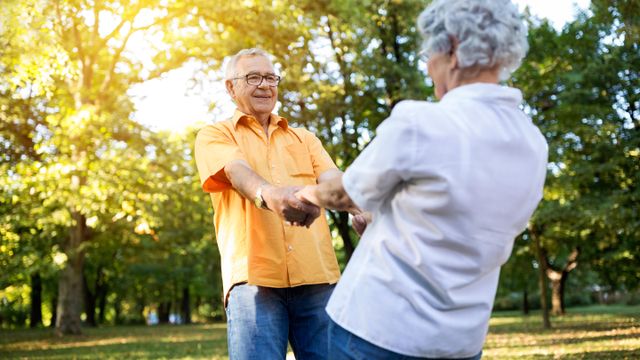Hotline helps NC seniors isolated at home during COVID-19
A local group has created a hotline to help seniors feeling isolated at home during the pandemic.
Posted — UpdatedThe North Carolina Baptist Aging Ministry’s free statewide phone line – 866-578-4673 – for seniors has expanded in order to meet what they have determined to be a growing demand.
Ministry leaders established the "One Hope" phone line service in 2019 using volunteers to answer calls from seniors ages 65 and older who are still living in their homes. At the time, the ministry relied upon a single phone line and only operated on weekdays, 9 a.m. to 9 p.m.
According to Dr. Sandy Gregory, director of NCBAM, the phone line expanded immediately when the COVID-19 outbreak took place, adding three lines and service seven days a week.
Whitney Brooks, a board-certified health coach for Duke Integrative Medicine, developed a training program for volunteers who answer calls from seniors.
Brooks said, even without a pandemic, many seniors experience intense feelings of loneliness and isolation. With COVID-19, she said, those feelings are magnified.
"We are seeing that the numbers are skyrocketing," Brooks said. "People are going stir crazy. They don’t have the connections that they are used to having."
When they are able to go out in public, Brooks said seniors may feel more anxiety. One reason is that they are not able to read facial expressions due to more people wearing face coverings in public.
Additionally, Brooks said seniors may feel more reluctant to leave their home.
"They don’t know if they’re going to get the virus. If they do, what does that mean? What will that look like for them?" said Brooks.
Brooks said that’s why the One Hope hone service is important. It’s not a crisis line, but rather a phone number to connect seniors to someone who will listen.
Connecting with and listening to seniors is a critical skill for people interested in becoming volunteers.
"I would say it really requires someone who wants to lead with their heart," said Brooks, adding volunteers don’t need to have special skills. "If anyone is wondering if they are qualified to do this, the answer is yes."
Gregory said the One Hope program has expanded in another important way, offering "friendly" or outbound calls often at the request of a relative or friend. Many calls can be scheduled to reach seniors at pre-arranged times and on certain days of the week.
Brooks said many seniors want to call someone but never do.
"Sometimes it can be hard for someone to take that step of making the phone call for themselves," she said. "There’s a sense of shame tied to calling and admitting loneliness."
The expanded service means that NCBAM needs even more volunteers. Before the pandemic, Brooks taught new volunteers in classroom settings. Now, Gregory says, they’ve turned to online, virtual classes.
• Credits
Copyright 2024 by Capitol Broadcasting Company. All rights reserved. This material may not be published, broadcast, rewritten or redistributed.





